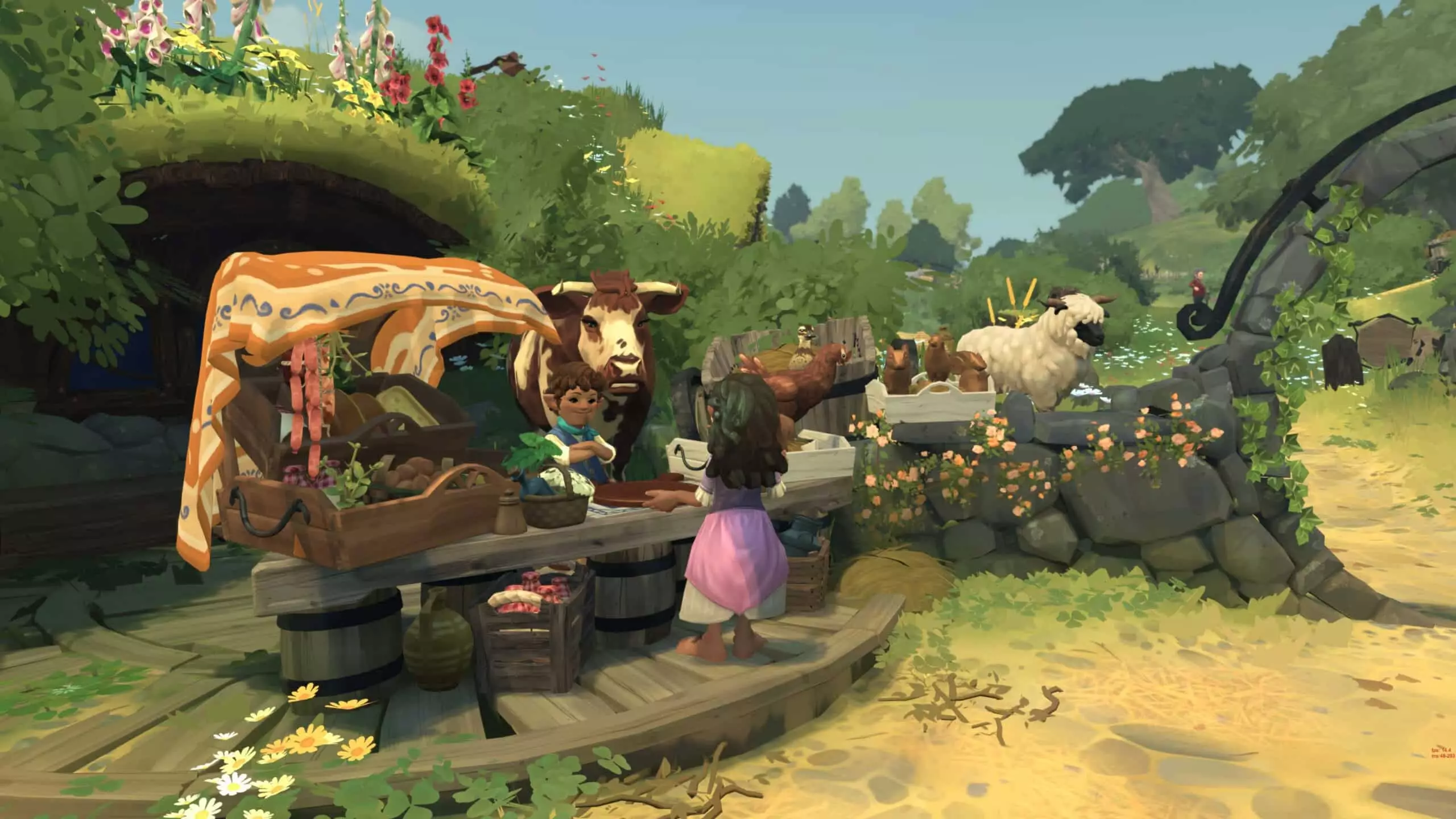The realm of video game development is notorious for its unpredictability, with delays becoming an all too familiar refrain in the industry. The latest entry to join the ranks of postponed projects is “Tales of the Shire,” a charming farming simulation inspired by the richly crafted world of J.R.R. Tolkien’s The Lord of the Rings. Originally slated for a March 2025 release, the game has now been pushed back to July 29, 2025. This decision has sparked a wide array of reactions among fans eager to step into the shoes of hobbits and experience their idyllic life.
The developers, Weta Workshop, alongside the publisher Private Division, have expressed a need for additional time to ensure that the game reaches its full potential across all platforms. In a heartfelt message to their community, the team emphasized their desire for “Tales of the Shire” to feel like “a warm hug from Middle-earth.” This analogy, while charming, raises questions about the realities that developers often face. Underneath the surface, the delay appears to be a response to quality assurance needs, particularly concerning the Nintendo Switch version of the game, which reportedly encountered “some difficulties.”
As we’ve seen in recent years, optimizing games for different platforms can be a formidable challenge, and the Switch has particularly struggled to support titles that demand high graphics fidelity and performance. This struggle underscores a larger trend in the gaming industry, where the end of a console’s lifecycle can lead to complications for developers attempting to push their games out on aging hardware.
The response from the gaming community has been a blend of understanding and disappointment. On one hand, many players appreciate the transparency from the developers and their commitment to delivering a polished experience. The acknowledgment of the importance of quality reflects a growing awareness among game creators that, in the eyes of players, a finely tuned game can make all the difference. On the other hand, the prolongation of anticipation can be tedious for fans who have been looking forward to immersing themselves in the Shire’s pastoral life.
This duality highlights an ongoing conversation over the balance between prudent development and maintaining hype. Gamers have experienced numerous letdowns from hurried launches that ended up underwhelming, leading to requests from communities for developers to take their time. Nonetheless, the drawn-out wait can feel like a double-edged sword, leaving fans to wonder if the game will ultimately meet or exceed their expectations.
Shifting Ownership: A Source of Uncertainty
Adding to the complexity surrounding “Tales of the Shire” is the recent shift in ownership and creative direction at Private Division. Following the sale of its assets and intellectual properties, the studio saw a significant change in its staffing and leadership dynamics. The group reported to be overseeing the project now includes former members of Annapurna Interactive, who bring their unique backgrounds and perspectives to development. While this could potentially invigorate the production process, it also injects an additional layer of uncertainty into the timeline and vision for the game.
The turbulence within a development studio can often ripple out to affect the projects it is responsible for. As “Tales of the Shire” navigates this transitional phase, fans must grapple with the implications of new creative influences on a title they are eager to see come to life.
Ultimately, the delay of “Tales of the Shire” serves as a reminder that the path to creating an engaging and polished gaming experience is often fraught with challenges and unexpected turns. The developers’ commitment to ensuring a warm and fulfilling experience that resonates with players demonstrates a dedication to quality that should not be overlooked. As the new release date approaches, anticipation will undoubtedly build, and fans will be keen to see how the final product unfolds.
While the gaming landscape continues to evolve, and studios adapt to new ownership structures and rising expectations, one truth remains constant: taking the time to create a great game is always worthwhile. So, for those eagerly awaiting a return to the Shire, there’s still hope that the extra time will yield an experience that truly feels like home.

